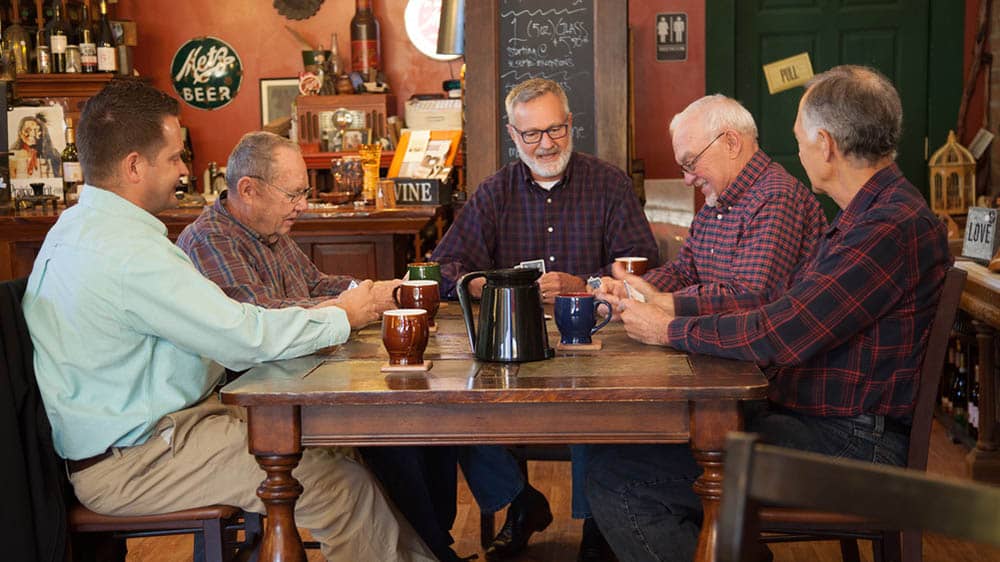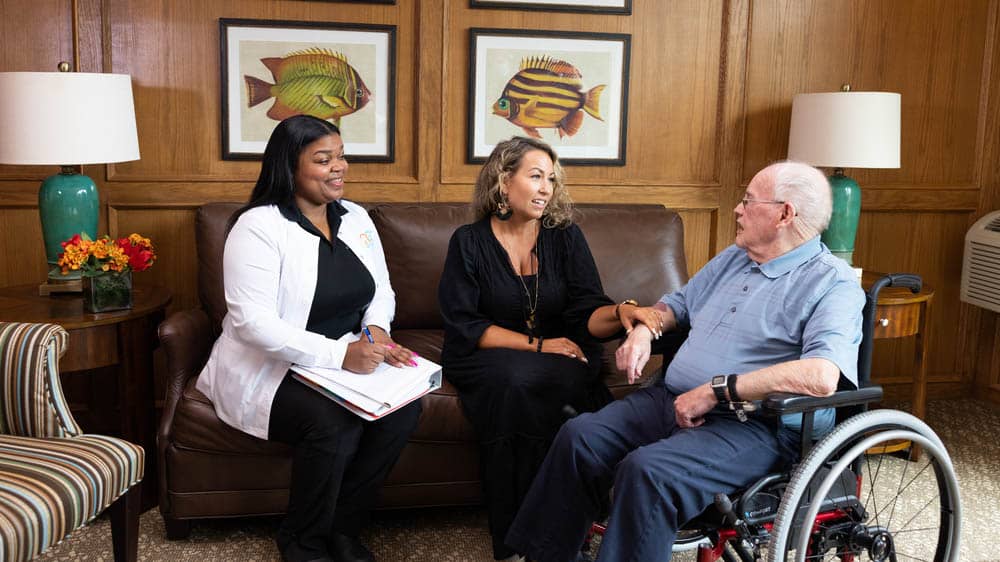

Combating Senior Isolation and Loneliness
Socialization Tips To Help Keep Seniors Healthy
For all the supposed connectivity of the information age, many older adults are still experiencing loneliness and social isolation. There are many reasons for this. For some, geographic separation makes it hard to maintain regular in-person contact with friends and family members. For others, health issues and the effects of aging are a hindrance to socialization. Or perhaps the technology that could help connect seniors with loved ones may be too expensive to buy or too intimidating to learn.
Loneliness and Isolation in Seniors Lead to Health Issues
Social isolation happens when a senior loses connection with people either by choice or circumstance. This can lead not only to mental health issues, but also physical health problems. Even if an older adult has family, friends and others to socialize with, they may be grieving a loss, struggling with their health, or experiencing the loss of independence. For retirees, they may be grieving a sense of structure and purpose provided by their career. According to the American Medical Association, social isolation and loneliness have been linked to an increased risk of high blood pressure, stroke, heart disease, dementia and premature death.
The Benefits of Engaging Socially
A feeling of worth and belonging is a basic human need. Building social connections requires intention and action. This can take effort, but it is worth it because staying socially engaged can help regulate and enhance mood and a sense of well-being. Here are other benefits of engaging socially:
- Improves cognitive function and helps prevent memory loss and dementia.
- Lowers the risk of heart disease and diabetes.
- Strengthens the immune system.
- Builds relationships that can lead to friendships.
10 Tips for Combating Isolation in Seniors
There’s no shortage of things to try in hopes of reducing loneliness and isolation. Here are some to consider:
- Make a habit of intentionally starting conversations with friends, family members, and neighbors.
- Take a community college continuing education class.
- Attend lectures, concerts, plays, panels and other public events that engage the mind and get you around people.
- Join a food, movie, book or gardening club.
- Enroll in an exercise program at your local senior center or Y (after checking with your doctor first, of course!).
- Start or join a breakfast, lunch or dinner club with old friends, loved ones, or colleagues.
- Take a trip with friends or family members; if you don’t have anyone to travel with, book a trip or tour with a group and make new friends along the way.
- Resume an old hobby or start a new one that gets you out of the house.
- Volunteer with a nonprofit.
- Serve as a mentor or tutor to a young person. If you have business ownership experience, inquire with your local Small Business Association or local-state business development center.
How To Help Family or Friends
If the elder in your life needs some help with socializing, consider doing things together, such as starting a genealogy or family scrapbook project; playing cards or board games; going out to dinner, the movies or the theater; enjoying must-watch TV-streaming shows; and taking walks or hikes. Your encouragement (and assistance) may be just what is needed to get the ball rolling.
Socializing is best done in person, but if an older adult is homebound, make sure they have video social platforms such as FaceTime installed on their computer and know how to operate them so they can enjoy other people’s company virtually. Connection can be only a few clicks away.
How Right at Home Can Help
Right at Home’s professionally trained caregivers provide services that promote healthy living and well-being through social interaction. Caregivers provide wellness support, meal preparation, light housekeeping and other services, including mobility assistance, hygiene services and transportation, to help older adults maintain social interactions. If you are interested in speaking with someone to find out more, use our location finder to get the phone number of the office nearest you.
Interested in receiving monthly tips, advice and information related to the aging journey? Subscribe to our Caring Right at Home e-newsletter today.







